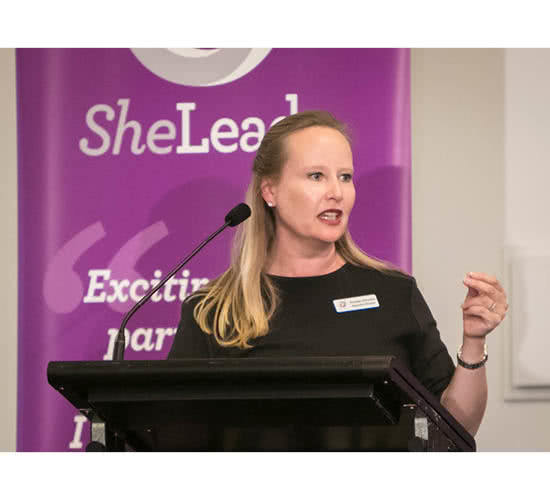YWCA Canberra CEO comments on ECEC workforce shortages and challenges they cause

CEO of YWCA Canberra, Frances Crimmins, has prepared a piece for The Canberra Times sharing her insights on the challenges of the growth in the number of early childhood education and care (ECEC) services in Canberra and the competition for educators to meet the regulatory requirements of staffing them.
“The underlying reality is that these services are all pulling from a small pool of qualified educators – a pool that shows no sign of growing to meet demand,” Ms Crimmins said.
Labour market projections for the ECEC sector predict that there will be a 20 per cent increase in the number of educators required to meet the demands of the sector – equating to around 30,000 people.
This, she added, “is not a trivial number, especially in a heavily regulated sector that has minimum qualification requirements.” Without sufficient staff with the correct qualifications, ECEC services must reduce their capacity, something which is happening in Canberra and across the country.
“Between 2016 and 2019, enrolments in the Diploma of ECEC across Australia declined by more than one-third,” Ms Crimmins said. “We now have a massive shortfall in the early childhood workforce, with services scrambling to attract qualified staff.”
Despite YWCA offering above award wages and conditions, she continued, “we have found it difficult to recruit quality staff to YWCA Canberra’s early childhood services. This concerns us both as a service provider and as an organisation dedicated to increasing the rights and freedoms of women.”
“Lack of access to early childhood services is a significant impediment for mothers in the workforce,” Ms Crimmins said.
“In a 2018-19 ABS study, unemployed and underemployed people were asked why they weren’t able to start a job or work more hours. Almost half of the women surveyed cited “caring for children” as a barrier; this was only a factor for 3.2 per cent of men.”
Ms Crimmins commented favorably on some work being done to increase the numbers of people entering early childhood careers, such as government grants programs and targeted supports. The Australian Children’s Education and Care Quality Authority has recently developed a 10-year national workforce strategy, something she said she was pleased to see, which includes consideration of how to better recognise the professionalism of the early childhood sector, both in remuneration and in social standing.
“At YWCA Canberra, we are dedicated to building a pipeline of qualified and confident ECEC professionals as part of our work to address gender inequality. But we are only one organisation. This needs to be a larger discussion across our community, in our workplaces, and in our governments,” Ms Crimmins said in closing.
To access the original coverage of this story please see here.
Popular

Practice
Provider
Quality
Research
Workforce
New activity booklet supports everyday conversations to keep children safe
2025-07-10 09:00:16
by Fiona Alston

Quality
Practice
Provider
Research
Workforce
Honouring the quiet magic of early childhood
2025-07-11 09:15:00
by Fiona Alston

Quality
Practice
Provider
Workforce
Reclaiming Joy: Why connection, curiosity and care still matter in early childhood education
2025-07-09 10:00:07
by Fiona Alston












